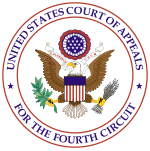Please E-mail suggested additions, comments and/or corrections to Kent@MoreLaw.Com.
Help support the publication of case reports on MoreLaw
Date: 01-10-2019
Case Style:
United States of America v. Susan Carpenter Masse, a/k/a Susan Carpenter
Case Number: 18-4376
Judge: Per Curiam
Court: United States Court of Appeals for the Fourth Circuit on appeal from the Western District of Virginia (Washington County)
Plaintiff's Attorney: Nancy C. Dickenson
Defendant's Attorney: Frederick T. Heblich - FPD
Description:

Susan Carpenter Masse appeals the district court’s order revoking her supervised
release and sentencing her to 24 months in prison. Masse argues on appeal that the
sentence is unreasonable. We affirm.
“We will affirm a revocation sentence if it is within the statutory maximum and is
not plainly unreasonable.” United States v. Webb, 738 F.3d 638, 640 (4th Cir. 2013)
(internal quotation marks omitted). Masse does not contend that the sentence exceeds the
applicable statutory maximum. The remaining question is whether the sentence is plainly
unreasonable.
“When reviewing whether a revocation sentence is plainly unreasonable, we must
first determine whether it is unreasonable at all.” United States v. Thompson, 595 F.3d
544, 546 (4th Cir. 2010). “In making this determination, we follow generally the
procedural and substantive considerations that we employ in our review of original
sentences, . . . with some necessary modifications to take into account the unique nature
of supervised release revocation sentences.” United States v. Slappy, 872 F.3d 202, 207
(4th Cir. 2017) (internal quotation marks omitted). Only if we find a sentence to be
procedurally or substantively unreasonable will we consider whether it is “plainly” so.
Id. at 208.
“A revocation sentence is procedurally reasonable if the district court adequately
explains the chosen sentence after considering the . . . Chapter Seven policy statements
and the applicable 18 U.S.C. § 3553(a) [2012] factors.” Id. at 207. “[A] revocation
sentence is substantively reasonable if the court sufficiently state[s] a proper basis for its
3
conclusion that the defendant should receive the sentence imposed.” Id. (internal quotation marks omitted). “A court need not be as detailed or specific when imposing a revocation sentence as it must be when imposing a post-conviction sentence, but it still must provide a statement of reasons for the sentence imposed.” Thompson, 595 F.3d at 547 (internal quotation marks omitted).
We conclude that Masse’s sentence is procedurally and substantively reasonable. The court correctly identified her policy statement range, considered the relevant statutory factors and gave sufficiently detailed reasons for selecting a sentence above that range. Among other things, the court noted that Masse had proven on several occasions to be unable to abide by the terms of supervision. The court was concerned about her repeated breach of the court’s trust, her chronic drug abuse, and the need to protect the public.
Outcome: We therefore affirm. We dispense with oral argument because the facts and legal contentions are adequately presented in the materials before the court and argument would not aid the decisional process.
AFFIRMED
Plaintiff's Experts:
Defendant's Experts:
Comments:
Find a Lawyer
Find a Case
